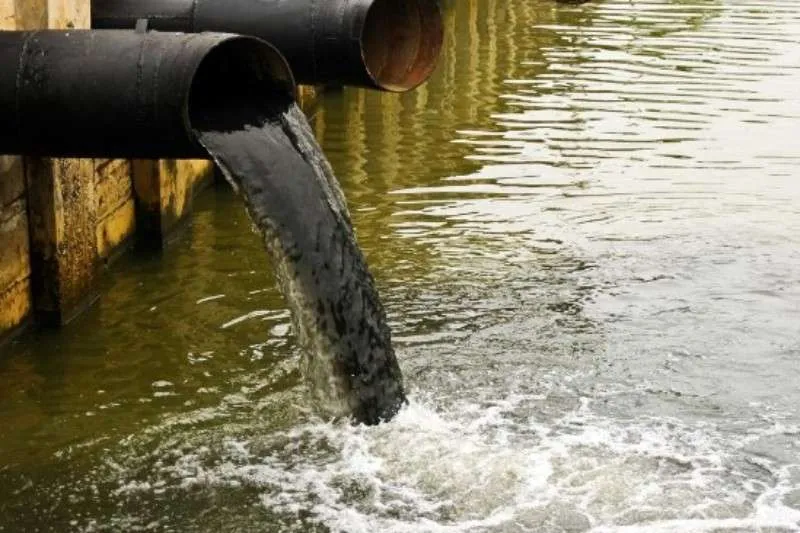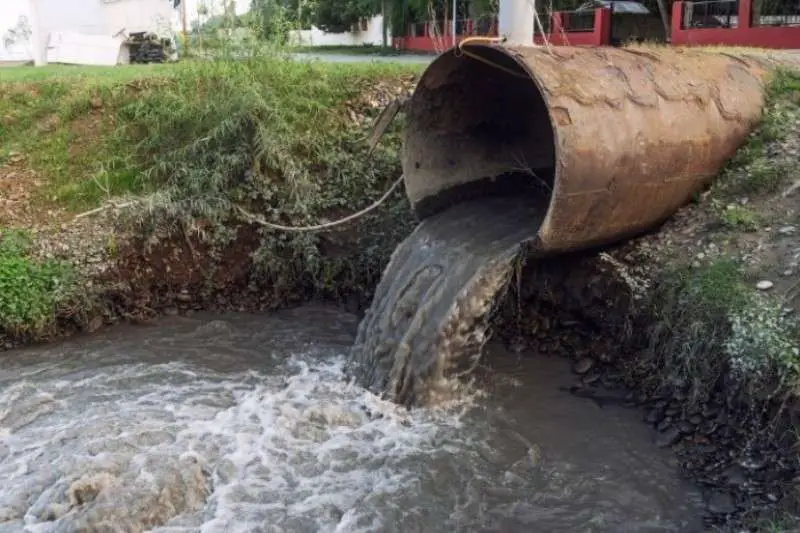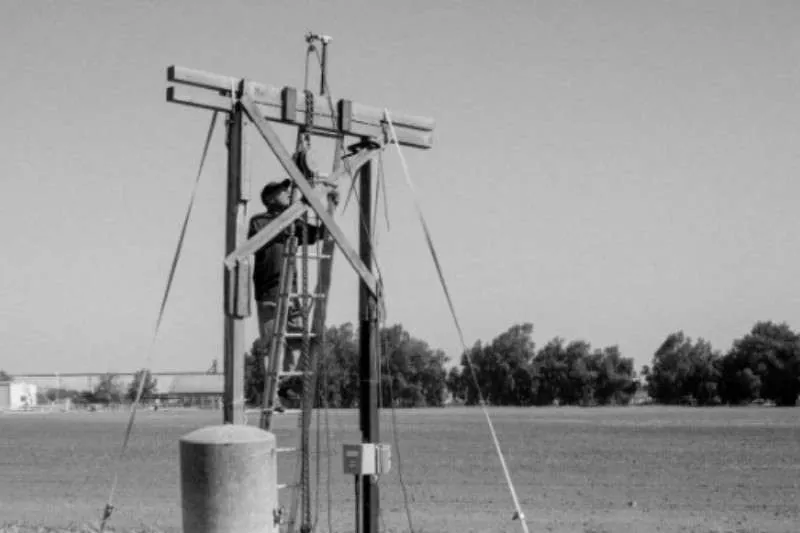When investing in a home, many people overlook septic systems’ importance. However, it’s essential to understand how maintenance and care of septic systems can impact groundwater pollution. Septic system safety is critical when considering the potential groundwater contamination disaster out of drinking water sources.
Every homeowner should be mindful of their responsibility for understanding and protecting their local environment by taking steps to maintain optimal conditions for their septic system.
In this blog post, we’ll explore how a well-maintained septic system can help reduce groundwater pollution and why homeowners must take ownership of this issue.
Introduction to septic systems and groundwater pollution
Septic systems play an essential role in wastewater treatment and groundwater pollution prevention. A septic system is a self-contained, on-site wastewater treatment system that functions without connecting to a public sewer network. It typically consists of a collection tank and a subsurface soil absorption field. Waste from kitchen sinks, showers, toilets, and laundry is collected in the collection tank, filtered, treated, and discharged into a subsurface soil absorption field where it can be further broken down.
The effluent from septic systems can have a significant impact on groundwater quality. Septic systems effectively contain wastewater to prevent groundwater and surface water contamination when properly designed, constructed, and maintained. However, wastewater can leak and pollute nearby groundwater sources if poorly designed, constructed, or maintained systems. Septic systems that are improperly installed can also create leaching fields that pose a health risk to humans when used for drinking water supply purposes.
Therefore, it is important to ensure septic systems are properly designed and maintained to protect groundwater quality. Regular septic system collection tank maintenance, including pumping and inspecting for any signs of damage or improper operation of drinking water septic systems, is essential to prevent wastewater from entering the soil absorption field. Furthermore, periodic testing of septic tanks and their effluent can help ensure that contaminants are not released into the environment.
How septic systems can contribute to groundwater pollution
Septic systems are sanitation systems used to treat wastewater in rural areas where an expansive sewage network is unavailable. When functioning and working properly, they can provide efficient and effective wastewater treatment but can contribute to groundwater pollution when things go wrong.
Septic systems and groundwater pollution are connected when the systems fail or malfunction. This can be caused by a few factors, such as improper maintenance, incorrect design, water overloads due to high water consumption habits or large influxes of water from storms, and aging systems that can no longer efficiently treat wastewater. When a septic system failure occurs, contaminants from the wastewater can leach into the groundwater surrounding the system. These contaminants can include bacteria, hazardous chemicals, and even heavy metals.
The potential contamination from septic system failures is a major reason why it’s important to check and maintain your system regularly. Regular septic tank inspection and maintenance can help prevent costly breakdowns and reduce the risk of contaminating nearby groundwater.
It’s also important to know how much water your septic system pollution takes in and ensure it’s not over-taxed. Ultimately, by understanding the connection between septic systems and groundwater pollution, you can help protect the environment from potential.
Identifying signs of septic system-related groundwater pollution

Septic systems are vital to many households but can threaten groundwater if not properly handled. Septic system-related contaminants, such as nitrates and harmful bacteria within, can pollute groundwater and threaten the health and safety of humans and animals in the area.
Identifying signs that your septic system might be contributing to groundwater pollution is important. Water quality indicators, such as high nitrate levels or bacterial contamination, can help you determine if there is a problem with your septic system. Additionally, looking for signs of septic system failures on your property—such as soggy ground near the leach field—can indicate something is wrong.
If you suspect that your septic system might pollute the groundwater, having a professional evaluate your system and take any necessary corrective action can help protect the people in the area. Regularly testing water quality near the property and ensuring that any plumbing septic system issues are dealt with promptly can also help reduce the risk of groundwater pollution.
The connection between septic systems and groundwater pollution is real, so it’s important to know the risks associated with poorly maintained septic systems. Having a professional evaluate your failing septic system and take any corrective action can help keep you and your community safe.
Preventing groundwater pollution from septic systems
Groundwater pollution from septic systems is a serious problem throughout the United States and other parts of the world. Septic systems can leach nutrients and chemicals into groundwater, leading to health problems for humans and wildlife. It is important to understand the connection between septic systems and groundwater pollution so that effective steps can be taken to protect our groundwater resources.
Proper septic system design, installation, and maintenance is the best way to prevent groundwater pollution from septic systems. Septic tanks should be designed and installed according to local regulations. Additionally, the tank and surrounding area must be regularly maintained and inspected for signs of leakage or contamination. By ensuring that your septic system is properly designed and maintained, you can help protect groundwater from contamination.
In addition to proper septic system design and maintenance, it is important to practice responsible waste disposal habits. Wastewater should not be dumped onto the ground or into nearby streams. Instead, wastewater must be disposed of appropriately to not contaminate groundwater.
Finally, water conservation is key to preventing groundwater pollution from septic systems. Reducing the amount of wastewater generated from your home or business will help reduce the strain on your septic system and prevent contamination of nearby groundwater. By using less water, you can help keep our valuable water resources clean and safe for future generations.
Remediation of septic system-related groundwater pollution
Septic systems are designed to receive and treat wastewater but can also be a source of groundwater pollution if not maintained properly. Groundwater contamination caused by septic systems can have serious environmental and economic consequences. Homeowners need to understand the connection between septic systems and groundwater pollution so that they can take steps to protect the quality of their local water supply.
The first step in addressing septic system-related groundwater pollution is to identify the source and extent of the contamination. This can be done by testing at various locations and observing surface conditions such surface water bodies such as ponding or green areas around sewage lines. Once the source and extent of the contamination have been identified, remediation strategies can be developed to address the issue.
Remediation of septic system-related groundwater pollution typically involves some combination of soil and water treatment and installation of systems or equipment that prevent or reduce further contamination. These strategies may include installing a new septic system with better capacity, repositioning the existing system to a more suitable area, or using treatment technologies such as in-filters.
The role of professional assistance is important for addressing septic system-related groundwater pollution. Professional help can ensure that the best solutions are implemented and that safety precautions are taken during remediation activities. Professionals can also guide the maintenance and upkeep of the septic system to prevent further water contamination.
Septic systems are an important part of our wastewater treatment system, but they can also be a source of groundwater pollution if not properly maintained. Homeowners must understand the connection between septic systems and groundwater pollution to protect their local water supply.
By taking the necessary steps to identify and remediate any septic system-related groundwater pollution, homeowners can protect their water resources and ensure the safety of their local environment. Professional help is essential for ensuring that the right solutions are implemented safely. By working together with professionals, homeowners can take action to protect our water resources and prevent further damage to the environment.
The importance of community awareness and action

Septic systems are a major source of groundwater pollution, and the community must be aware of this issue to prevent any negative impacts on local water quality. Community members need to understand the connection between septic systems and groundwater pollution so they can become informed stewards of their public health, safety, and the environment.
Educating neighbors and community members about the connection between septic systems and groundwater pollution is essential to spread awareness and understanding of the issue. This can be done through informative pamphlets, word-of-mouth conversations, public service announcements, and other methods of communication. People must understand how their actions can impact their local environment and what steps they can take to protect it.
In addition, collaborative efforts among communities and agencies are critical for storing wastewater safely and protecting local groundwater quality. Working together can ensure that effective septic system maintenance is conducted, septic system replacements meet safety requirements, and any new systems installed adhere to best practices for wastewater management. Additionally, it is important to monitor local water sources for signs of contamination and take steps to protect them from further pollution.
By educating community members, engaging in collaborative efforts, and protecting local groundwater quality, communities can safeguard their health, safety, and the environment. Everyone must protect our natural resources and drinking water wells and prevent further groundwater pollution.
FAQs
How can septic systems contribute to groundwater pollution?
Septic systems can contribute to groundwater pollution by allowing liquid waste to seep into the soil and reach local water sources. If sewage accumulates in the soil, it can introduce pollutants such as nitrogen, phosphorus, and other hazardous substances into local groundwater.
What factors can lead to septic system failures or malfunctions?
Septic system failures or malfunctions can be caused by various factors, such as poor soil conditions, overloading due to excessive use, improper installation, and aging infrastructure. In addition, blockages and cracks in the septic tank can lead to sewage backups and other issues.
What contaminants can leach into groundwater from septic systems?
Septic systems can leach contaminants such as nitrogen, phosphorus, pathogens, and other hazardous substances into groundwater. These pollutants can adversely affect both human health and the local environment.
How can I identify signs of septic system-related groundwater pollution?
Some signs of septic system-related groundwater nutrient pollution include changes in water color, odor, or taste; floating debris; and sediment. In addition, may notice pools of standing water or vegetation that are discolored due to nutrient loading.
What steps can I take to prevent groundwater pollution from my septic system?
To prevent groundwater pollution from septic systems, homeowners must take steps such as regularly inspecting their systems, repairing any leaks or blockages immediately, and keeping up with routine maintenance. Finally, communities should work together to increase local awareness and protect water resources.
How can I remediate groundwater pollution caused by a septic system?
Groundwater pollution caused by septic systems can be remediated in various ways. Sometimes, homeowners may need to replace their failing septic systems with properly functioning models.
Conclusion
Property owners must know the importance of maintaining a healthy septic system to protect our local environment and mitigate groundwater pollution. A well-maintained septic tank can reduce the number of contaminants in nearby bodies of already contaminated drinking water, which has implications for everyone’s ability to enjoy, use, and benefit from our environment. Homeowners must take responsibility for understanding and practicing sustainable practices that minimize damage to the ecosystem.


